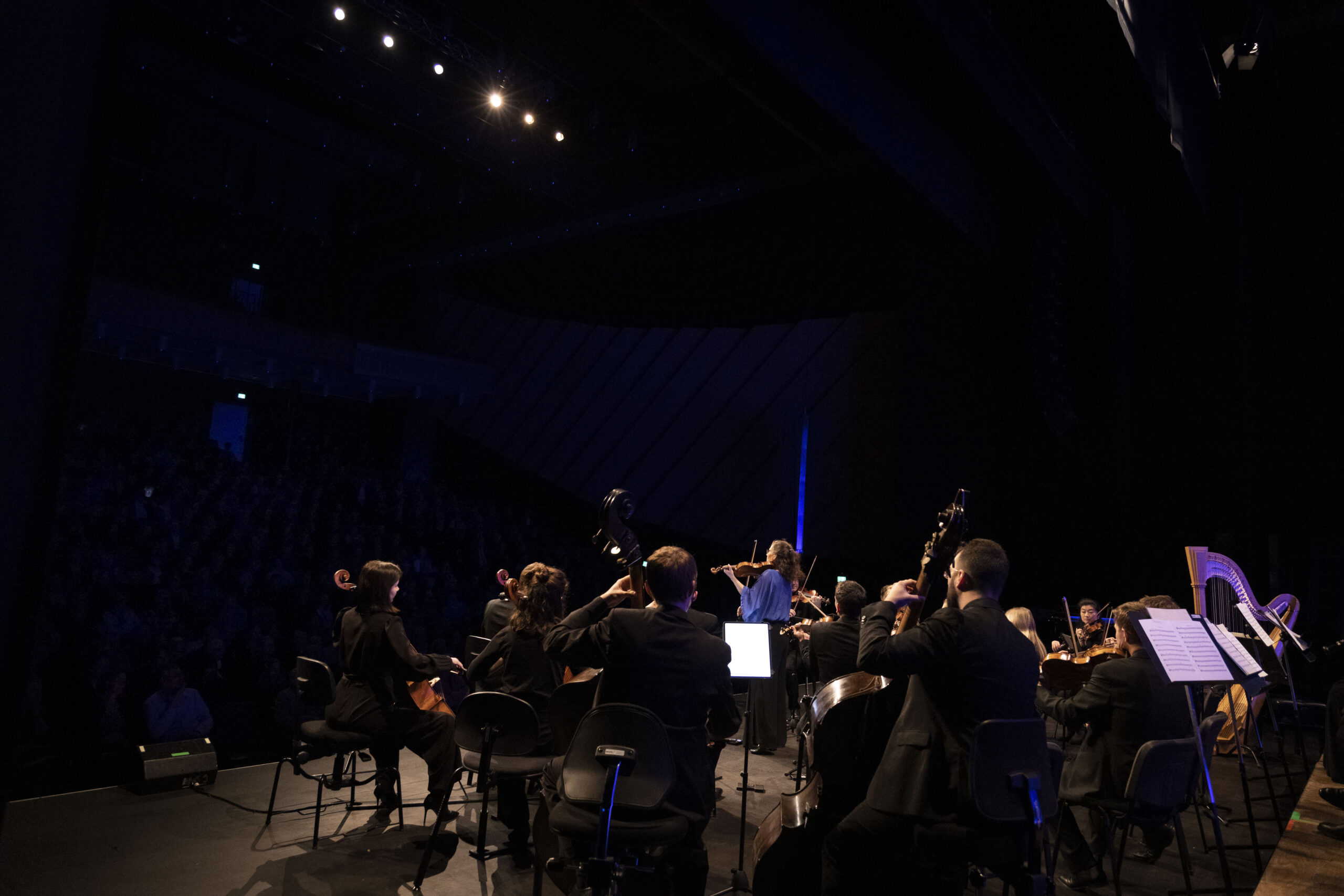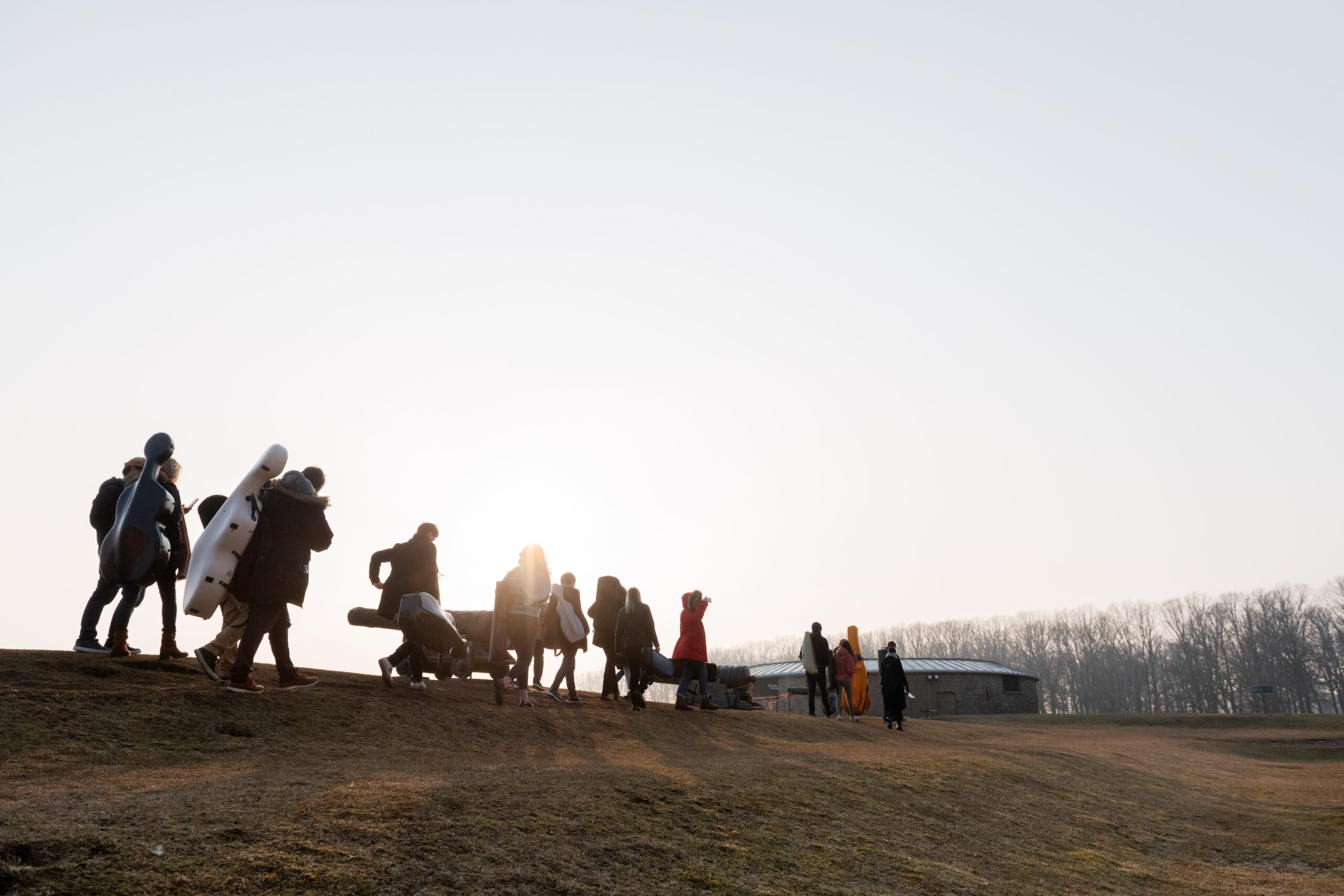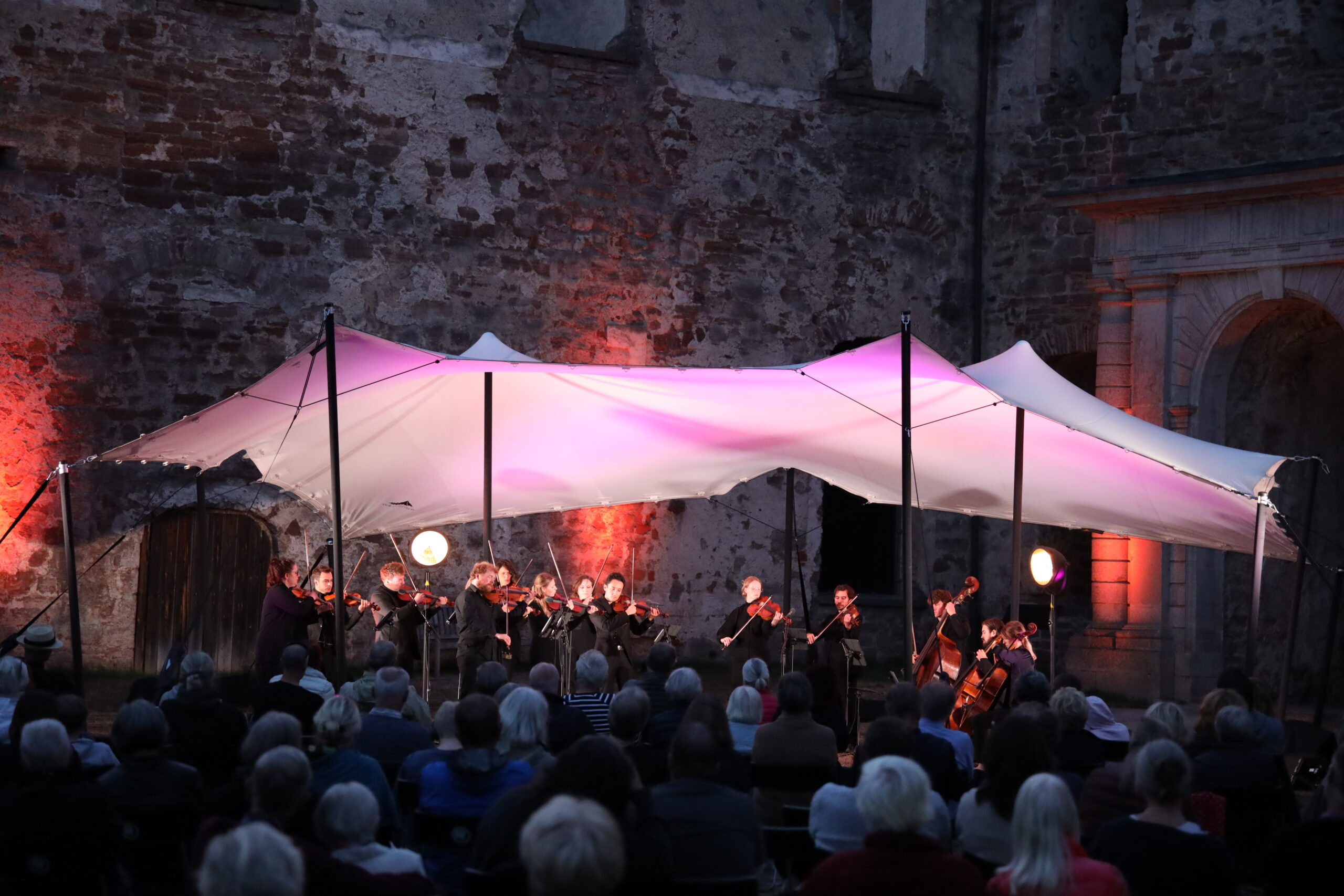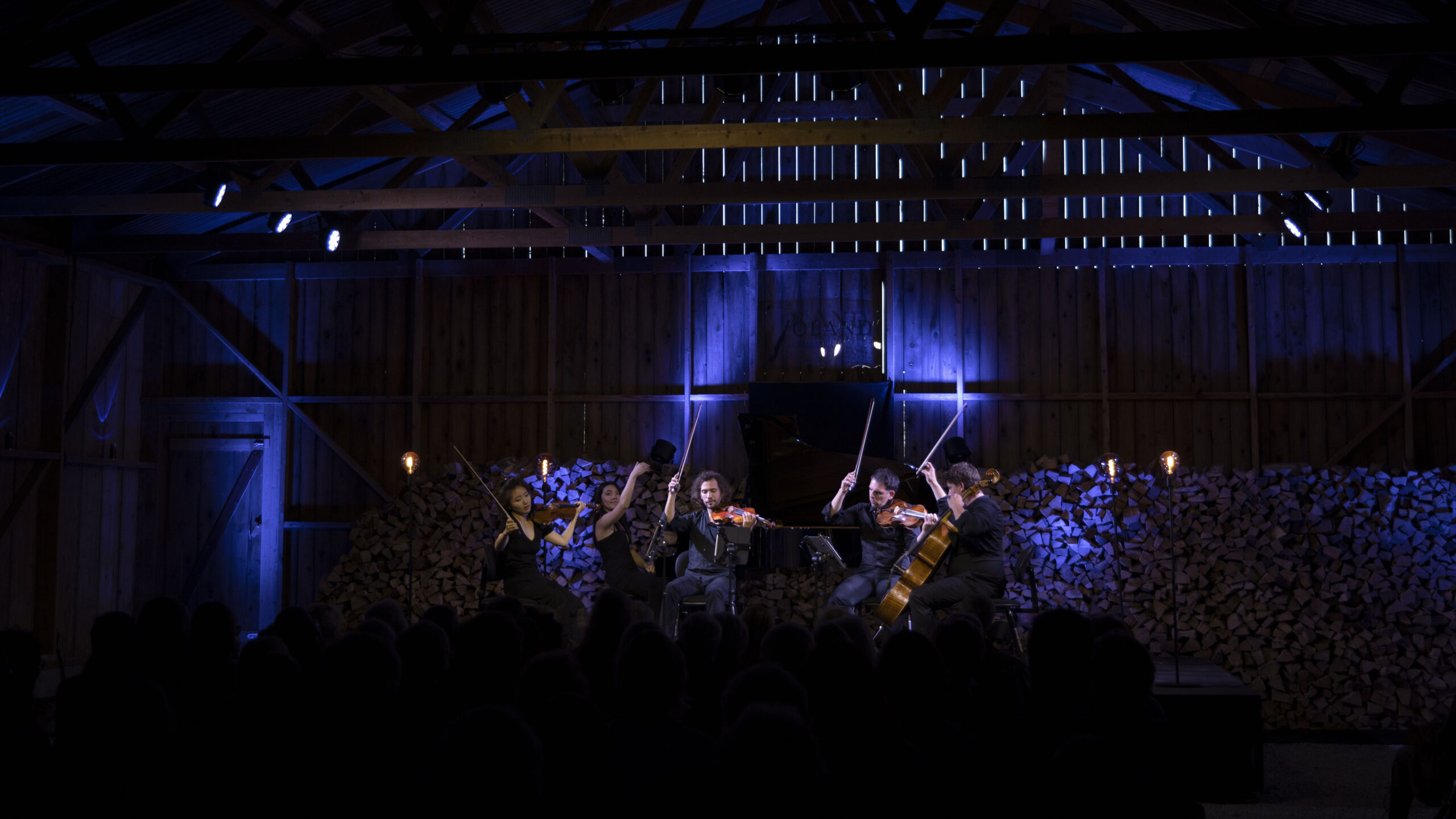Concerts
Program
With this production Camerata Nordica Chamber Ensemble is bringing out three masterpieces of the chamber music repertoire written by female composers too often forgotten in the concert’s programmation. The choice of repertoire went to three pieces that really fit beautifully together and really deserve to be heard more often!
Rebecca Clarke was born in Harrow in 1886 and died in New York City in 1979. She was one of the finest viola players of her day and a skillful composer who studied with Sir Charles Villiers Stanford at the Royal College of Music in London. “Dumka” was written around 1940, placing it near the beginning of a series of Clarke’s late compositions. It both looks forward to her lean, linear, avowedly modern conceptions and backwards to works which are explicit homages to ancient styles, forms, and composers. A strain from the gypsy-rondo of Brahms’s Piano Quartet Op. 25 echoes throughout the opening pages and is heard again in the piece’s remarkable conclusion.
Piano Trio in G minor, op. 17 by Clara Schumann was her only piano trio and was composed during her stay in Dresden 1845-1846. During the development of the Trio, she was going through hardships in life. Her husband Robert Schumann was extremely ill. This trio was completed during the summer of 1846 when they traveled to the island of Norderney in attempts to improve Robert’s health conditions. While in Norderney, Clara suffered from miscarriage. A year after the composition of her piano trio, Robert composed his first piano trio, op.63. It is seen that Clara’s trio has had great influences on Robert’s trio as they both share many interesting similarities.
The program will end with Amy Beach piano quintet which as well has its place in the masterpieces of the chamber repertoire. The first performance was given by Beach herself, with the Hoffmann String Quartet, at Potter Hall, Boston, on 27 February 1908. Beach’s biographer Adrienne Fried Block has noted that ‘the audience was unusually large, drawn by interest in Beach’s later work’, and that the Boston critics, ‘in an instance of unanimity, greeted the work as an important contribution to the literature’. During her lifetime Beach performed the work on numerous occasions—including a series of performances on tour with the Kneisel Quartet in 1916/7—and it was published by the Boston firm of Arthur P Schmidt in 1909. A century later, it has come to be regarded as an impressive and individual successor to its great nineteenth-century models, particularly, of course, the Brahms piano quintet played in 2023 by our chamber ensemble, to which it can be considered a highly original and distinctive homage.







